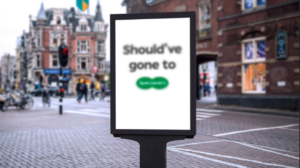Research from Wunderkind, the performance marketing channel that scales one-to-one messages for retailers and brands, has found that while retail Chief Marketing Officers (CMOs) have weathered the turbulence of the pandemic and the headwinds of economic volatility, many marketing leaders feel their legacy martech stacks have gaps in their customer engagement capabilities – leaving potential revenue opportunities on the table.
Three quarters (73%) of CMOs were able to meet or exceed revenue projections in the last two years
However, 96% of brand marketing leaders believe there is a gap in knowledge of their technology
Just 9% believe their tech strategy “greatly enables” their marketing performance
——————–
Research from Wunderkind, the performance marketing channel that scales one-to-one messages for retailers and brands, has found that while retail Chief Marketing Officers (CMOs) have weathered the turbulence of the pandemic and the headwinds of economic volatility, many marketing leaders feel their legacy martech stacks have gaps in their customer engagement capabilities – leaving potential revenue opportunities on the table.
Original research of over 100 senior marketing leaders in Wunderkind’s inaugural ‘CMO State of the Union’ Report found that 94% of retail CMOs regard the last two years as a critical turning point for marketers due to a combination of the pandemic, up-ended global supply chains, and a tumultuous economic environment. However, despite these challenges, almost three-quarters (73%) of CMOs say they were able to meet or exceed revenue projections during this period, and over half (55%) were able to increase their overall marketing spend.
However, while retail CMOs grasp the need to digitally transform their marketing capabilities to meet the new needs of consumers – and fully acknowledge the role of their martech stacks to build up first-party data and enhance customer engagement – the State of the Union report showcased that, without understanding how to fully leverage the technologies brands have invested in, CMOs could be missing out on revenue opportunities.
The report revealed that 96% of retail marketing leaders believe there is a gap in knowledge regarding their technology, while just 9% believe their tech strategy “greatly enables” their marketing performance. Only 5% believe their marketing organisation utilises their technology “extremely well”.
What’s more, 60% of CMOs admit that, while they are currently planning for a marketing landscape that doesn’t involve cookies, they aren’t completely confident regarding how to turn this preparation into a competitive advantage. This lack of understanding links to the fact that, according to the report, 78% of CMOs believe they have a good customer experience strategy – but their consumers aren’t in agreement. Consumer research has found that shoppers are largely dissatisfied with how brands communicate with them, partly due to CMOs being over-reliant on external channels and third-party cookies, and not putting enough focus on personalised, one-to-one engagement.
Consumers have become more demanding when it comes to expectations in their buying journey and how brands interact with them. Separate research of over 2,000 UK shoppers by Wunderkind has found that 62% feel brands and retailers could do more to build one-to-one shopping experiences, while a further 61% said they would be more likely to buy from a brand that personalised their engagement with them.
Richard Jones, Chief Revenue Officer at Wunderkind, commented: “CMOs are now at a crossroads. Innovation has to continue in order to communicate the right message, maintain consumer loyalty, boost revenue, and reach digital maturity. While legacy technology has helped brands begin to reshape their marketing strategies, it has also created seas of disparate data and tools that aren’t talking to each other – ultimately impeding brands from unlocking additional tangible revenue streams.”








